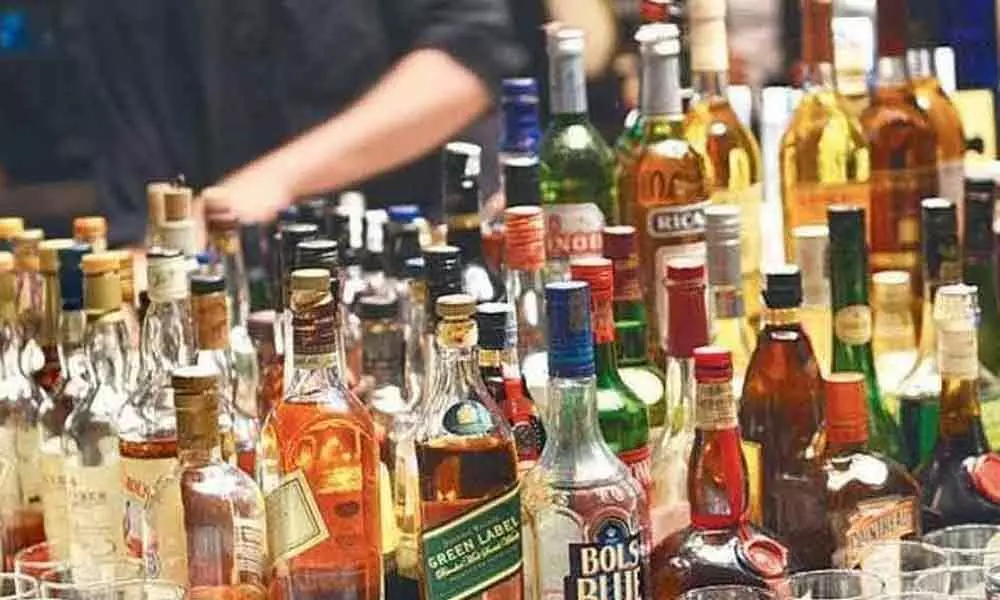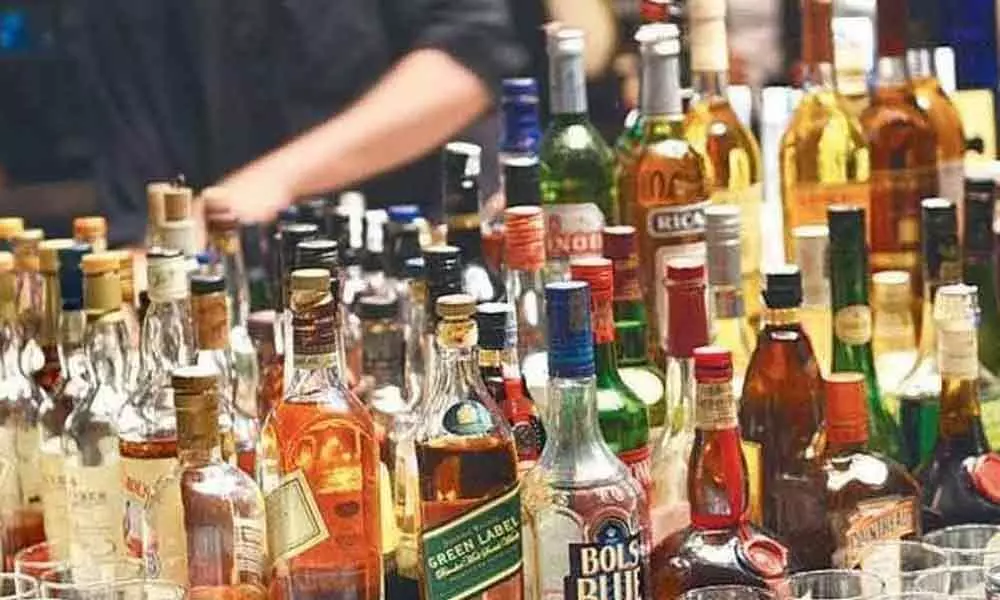How can I start a Wine Shop in India – Detailed Guide
“Drinking liquor has always been a stigma in Indian Society. Drinking is common in European countries. They often drink wine, beer, vodka, scotch, rum, etc. Due to globalisation and cultural exchanges, many things have changed in Indian Society. Now, drinking in higher-class society has become a normal thing and is not considered taboo.
They often drink at parties, marriage, office parties and event celebrations. Consumption of liquor has also increased in middle class society. A few decades ago drinking was limited to the higher class of society and was the symbol of royalty. Drinking was limited in middle class society and was considered as a stigma in lower society.
Due to globalisation, change in corporate life, drinking has become common in middle class society. It is now accessible to lower society. Due to the rising trend of liquor in lower and middle class society, the demand has multifold increased. These days wine or liquor shops are doing a huge profitable business. Now, selling liquor is also not considered a stigma in society.
If you want to start a new business, the government has eased out the law of selling liquor. So, why do you delay, get the licence and start a huge profitable business?”
Wine Shops and Law in India
Opening of liquor shops is restricted in every part of the world because it is taken beyond the limit, it leaves a bad effect on health. Besides individual health, it creates a huge impact on the family and finally on society. Therefore, drinking of liquor is restricted under the law of the land of every country.
Read More : Top 11 Tea franchise in India
India is a temperate country and its temperature is quite pleasant. Therefore drinking liquor has not been very common in India. European countries are seasonally very cold. To keep the body warm, eating meat and drinking wine is a common culture of Europe. But in India, due to its climate and culture, drinking liquors has been always taboo in society.
Earlier there were strict laws for consumption of liquor in India. To sell alcohol in India, you must have a licence. At present time, liquor is served in bars, hotels, certain restaurants, clubs, pubs, and discos. Hence, entrepreneurs must get a wine shop license from the Excise Department. Importing and exporting foreign liquor are under the Central Government control whereas selling or supplying of liquor at local level comes under State Government.
There are different types of licenses issued for selling liquor. The licence category depends upon the type of shop, nature service and business type. Here is a list of different types of licenses issued by the excise department to operate selling and supplying of liquor in india.

Type of liquor licence in India
- Beer and Wine Shop Licence: This category of licence is issued by the excise department for selling mild liquors, such as- beers and wine, vodka etc. Beer and Wine Shop license is not applicable for hard liquor.
- Restaurant Liquor License or All-Liquor License: This category of licence puts a limit on the selling of liquor. A restaurant can not sell more than 40% of Restaurant income.
- Tavern Liquor License: Issued to the establishments that get half their profits through the selling of liquor.
- Brew up Liquor License: This licence is issued to those that make/ brew their wine and beer.
- L1: is issued for Wholesale license to supply liquor to other license holders.
- L3/L5: under this category of licence hotels are allowed to serve foreign liquor to customers in their rooms/in bars(L5)
- L6: Applicable for retail vendors of Indian Liquors and beers.
- L19: is issued to clubs that serve foreign liquor.
- L49: under this category licence is issued to a person who wishes to serve liquor at a party.
- L-9: for retail sale of foreign liquor
- L-10: is issue for retail sale of Indian and foreign liquor
- P-13: is issued to hotels for serving foreign alcohol for a specific function
- P-10: is issued to serve the alcohol at a particular function within the city
Document Required for getting Wine Shop License
Selling and supplying of liquor at local level is controlled by the state government. Each state has its own provision to regulate the selling and supplying of liquor in India. Hence numbers of documents and type of documents required for obtaining licence could be different. However, there are certain essential documents that are required for every state to issue a liquor licence for selling liquor. Below are the names of the document required for liccese-
1. Identity proof
2. Address proof
3. Aadhaar Card
4. Address proof of Premise/shop where for licence to be obtained
5. NOC from Municipal Council or Corporation and Fire Department
6. Application letter with personal details
7. Getting MOA and AOA for the company
8. ITR copies for last 3 years
9. Photographs
10. An affidavit confirming that the applicant has no criminal record.
11. An affidavit declaration confirming no due is pending to applicant
How to get a Wine Shop Licence in India
Before going to apply for a licence, an applicant should follow the following steps in order to get a license.
- Take the consultation from a professional lawyer. The lawyer will explain what are the laws and regulations about selling and supplying liquor.
- After consultation, decide the type of business you want to start off.
- Go directly to the Excise Department office or apply online whichever is available and applicable.
- From the website, download the application form, take the print out.
- Fill in the Application form correctly.
- Paste the photographs on Application from wherever is required
- Attached the required documents
- Go to the excise department and submit it
- Pay the Application fee to the department
- The excise department, after reviewing documents and application details, issues the licence.
- Or Department may asked background verification certificate
- If the department asks for any further documents or details. Applicants must provide them.
- If the Department is satisfied with details and documents and affidavits, then issues the licence.
Wine Shop Licence Fee in India
Licence fee varies from type of licence, business size, nature of business and nature of liquors are served or supplied. Below is the list of licence fees applicable in order to run a liquor business.
Temporary Liquor Licence Fee : Under this category of licence, Licence holder can throw small parties or events in a town that population does not exceed 20 lakhs.
- For less than 100 members – Rs. 7,000/-
- For more than 100 members – Rs. 10,000/-
FL-4 License
- Under this licence, the licese holder can host a party with liquor in a resort or private flat.
- The license Fee- Rs. 13,000/-
Permit Room License:
- To serve in permit rooms – Rs. 5,44,000/-
- For restaurants and wine/beer shops Rs. 1,50,000/-
State Liquor License
- Is issued to anywhere between Rs. 5000 to Rs. 15,000 depending on the state
- Annual license fee in Tier-1 cities - Rs 10 lakhs
- Annual license fee in Tier-2 cities - Rs.7.5 lakhs
- Annual license fee in Tier-3 cities- Rs. 5 lakhs
- Annual license fee in Tier-4 cities- Rs 2.5 lakhs
Conclusion
Globalisation is one of the prime factors of changing culture and market. Due to the advent of technology, manufacturing and transportation have become faster and easier. Globalisation has greatly changed the market and culture of every country. Due to change in Indian culture, drinking liquor like- beer, wine, vodka, Soda, whisky, etc are no longer taboo in society and have become more common. Therefore, the demand for liquor has greatly increased.
The state and central government of India have also eased out the law of issuing licence for selling and supplying of liquor. Now, even foreign liquors are easily imported and are being supplied in restaurants, bars, hotels and parties. India is still lagging in the rate of consumption of alcohol in comparison to Europe and other western counties. High quality wines are mostly imported from Italy and france. There is huge demand for liquor in the Indian market. Therefore starting a Wine shop business is really going to be the most profitable business.
Disclaimer: The information provided in this post is for general informational purposes only and does not constitute professional advice. Please consult a qualified professional before making any decisions based on this content.
